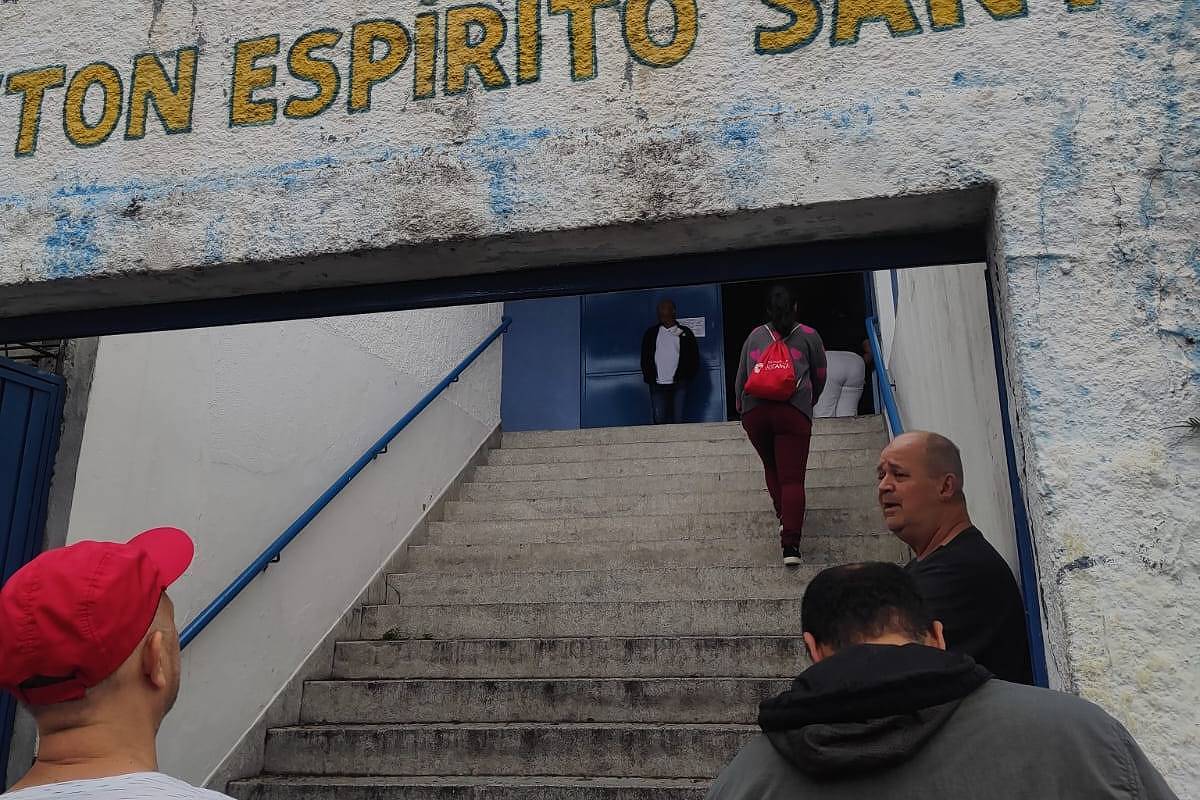
A mistake by Inep, the federal agency in charge of Enem, prevented candidates from using the toilet for eight hours last Sunday (9th) to finish the first day of the exam. She uses a wheelchair and was assigned to take the exam at a school with no accessibility.
This is the third time Sofia Crispim Soares, 20, has taken the exam, which will continue next Sunday (16th). As with other editions, she indicated during registration that she needed to take the test in a wheelchair-accessible school and that she needed reader and transcriber support. She has cerebral palsy.
Reports and other medical documentation proving the need for specialized care were also sent to Inep as requested by the Enem notification.
“The system had already saved Sofia’s information because we had already registered in other years and requested this support. It always worked and we never had any problems, but this time they did everything wrong,” says Denise Crispim, 46, the young woman’s mother.
When contacted about this matter, Inep said that they have already informed Sebraspe, the company responsible for Enem’s application, to arrange the students’ relocation next Sunday, November 16th. Regarding the first day of testing, students will be entitled to take the test on December 16th.
After arriving at the exam center at Professor Newton Espirito Santo Ayres’ state school in Osasco (Greater SP), the mother and daughter realized that accessibility for wheelchair users did not exist. The main entrance to the unit has at least 15 steps.
“We were then told to enter from the back for easier access. However, this entrance also had a staircase, albeit a small one. Sophia had to be carried by the exam administrator.”
In addition to the inconvenience of having to be carried, Dennis also risked injury to the young man due to improper transportation.
“After this humiliation, while she was in the room, they came to tell us that she could not go to the toilet during the test because there was no accessible toilet. She arrived at 12pm and the test was not finished until 7:30pm (people with disabilities have the right to additional tests).”
Denise said she even told her daughter not to take the exam in such a situation, but the young woman did not want that. “She said to me, ‘Mom, I’ve been preparing all year, I can’t pass up this opportunity, wait another year to try again.'”
When Sophia was in the room, she was also informed that the organization would only provide a reader (a professional who would help read the test) and not a transcriber (who would transcribe test takers’ answers).
“After much struggle, we were finally able to get her the support of the two people she needed to take the test. However, she was already very nervous due to this whole mess.”
Of the more than 4.8 million registrants confirmed for this year’s Enem, approximately 165,000 requested some type of special assistance. This corresponds to 3.4% of the total. Only about 7,700 test takers said they needed to take the exam in an easily accessible room.
“In Brazil, people with disabilities have very few educational opportunities, and even if they manage to graduate from high school, they still face difficulties. For this population, it is very unprepared and humiliating,” Dennis says.
She said she would report Inep to the public prosecutor’s office for not guaranteeing her daughter the same conditions of proof as others. “All of our students were able to leave the test when they wanted to, but my daughter couldn’t because she wasn’t guaranteed the basics. We’re not asking for any benefits. We’re just asking for the dignified treatment that everyone is entitled to.”



